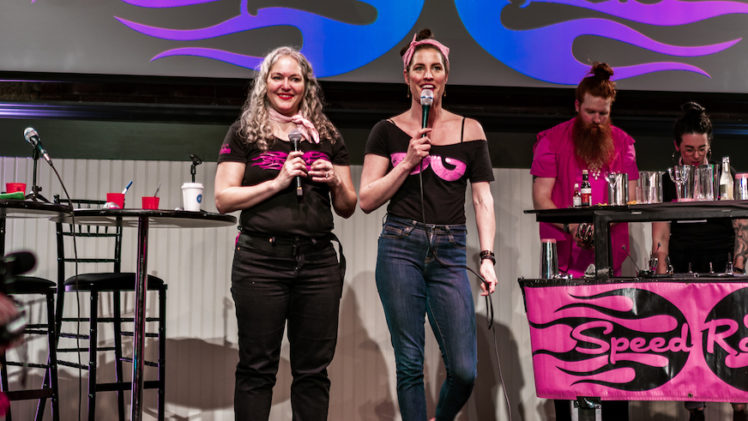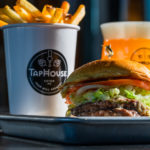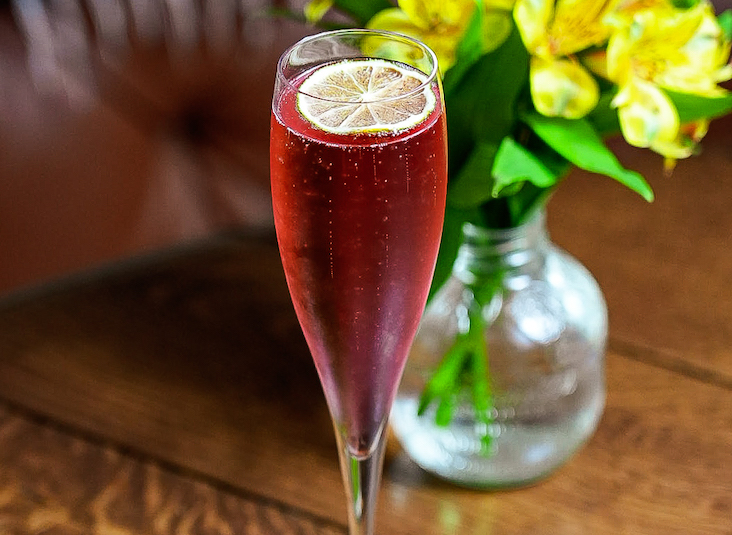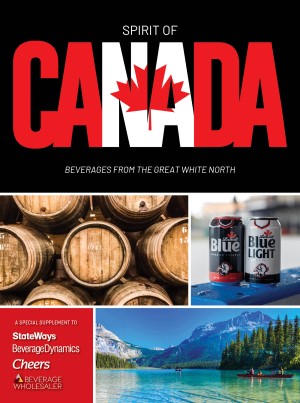The beverage alcohol business has long been considered an old boys network, and it’s true that the industry still remains male-dominated. Yet women have always played key roles, often behind the scenes.
While women have come out of the industry shadows, for too long many have had to work harder than men to prove themselves. They’ve often had to overcome not just chauvinism and oppression but outright harassment by men in power, especially in the beverage hospitality sector.
But things have been changing quickly in recent years, with a greater opportunity for advancement in the wine, spirits and beer industries for women and more focus on addressing gender diversity. The Me-too movement of recent years helped expose some of the abuses, while the pandemic lockdowns highlighted the need for flexibility and life balance, particularly for working mothers.
We’ve also been seeing many brands announcing their first female head distiller, master winemaker, brewmaster and so on, as well as companies in the retail, restaurant and distribution channels appointing women to high-level corporate positions. A number of organizations have sprung up to support women in the industry.
We reached out to some of the influential women in beverage alcohol today to learn more about their backgrounds, inspirations and role models, and what it means to be a leader in the industry today. Following Part 1 of this two-part feature, here’s a look at more women who continue to make an enormous impact in the alcohol industry.
Caterina Sacchet
Winemaker from Carpineto winery.
How did you get into the beverage alcohol business?
What makes you a successful leader?
I tend to lead by example.
How important is mentorship? Did you receive any coming up, and do you provide it to women in your organization?
Of course for me my biggest mentor was my father, as he was the chief winemaker before me. His core team was my grandmother, my mother and my aunt — all bright and motivated women that successfully coordinated their eventful work life with raising a family.
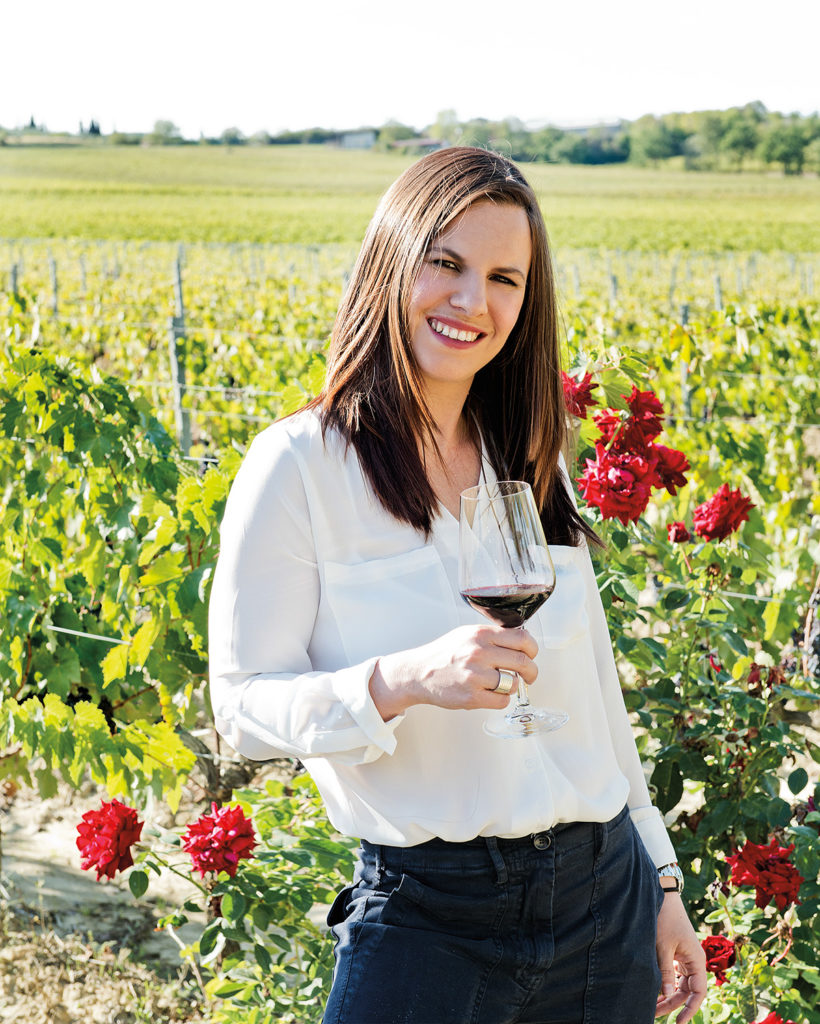
Today my team is composed mostly of women, from the office to the cellars team. It is a very experienced team, with members that often have decades of tenure and work together and help train new members and each other. We believe in the continuous improvement process throughout.
How has your company benefited from having women at the table making decisions?
At Carpineto women have always been at the center of our organization, making decisions and charging ahead. Since 1967 we have grown to produce wine from five Tuscan estates from the most historic appellations.
We believe in sustainable farming and being good keepers of the land, therefore our operation is actually carbon-neutral and our wines are vegan-friendly. Perhaps this comes from the woman’s nurturing instinct, but frankly I think everyone at Carpineto has always wanted to do the right thing, men and women alike.
Who are your professional role models?
My Grandmother, Eugenia, has always been a life-long example for me. She has managed the cellar operations at Carpineto for decades while raising two kids and grandkids, while living a very satisfied personal life, always giving the right priorities and making the just choices.
At almost 90 years old, she continues to be an inspiration to all of us, and we have the confirmation that her lasagna continues to be the best in the world!
Lynnette Marrero and Ivy Mix
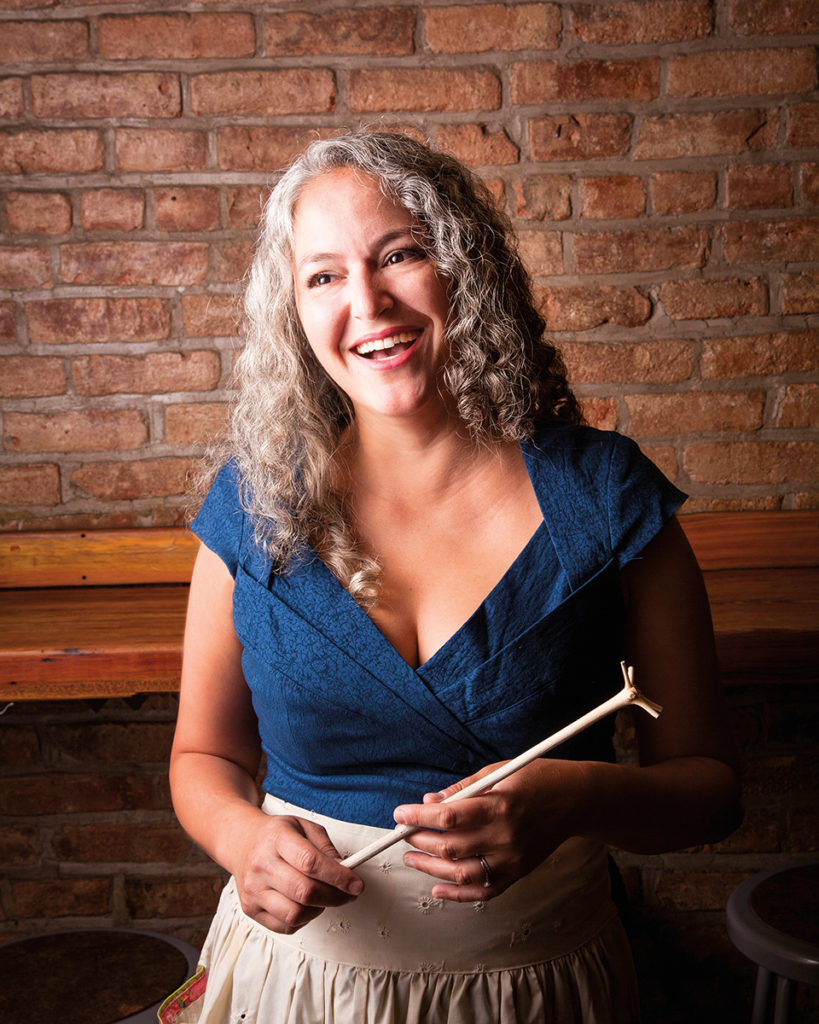
New York bartenders Ivy Mix and Lynnette Marrero in 2011 founded bartender competition Speed Rack, which shines a spotlight on female mixologists thriving behind bars around the country, while raising money for breast cancer research, education and prevention. Lynnette is the bar director at the Peruvian restaurant Llama Inn in Brooklyn, and Ivy is co-owner and head bartender of Leyenda, a pan-Latin cocktail bar in Brooklyn.
How did you get into the beverage alcohol business?
LM: I was working as a waitress in a cocktail barÉ. At the time, in 2003, these establishments were called ‘Martini Bars’. We did manage to serve loads of 10-oz. Dirty Vodka Martinis to the after-work crowd, and others including Key Lime Pie Martinis, Chocolate Martinis, Apple Martinis, Cosmos and the occasional Flirtini.
The only previous experience I had in restaurants and bars was at a wine bar, and this new colorful world of drinks had me excited to be a part of this high-end lounge lifestyle. I eagerly befriended the bartenders and learned some of the tricks of the trade.
I made index cards to learn the most-common drinks — Sex On The Beach, Fuzzy Navel, Kamikazes. I was on track to hopefully move behind the bar.
After our practice sessions, my mentor Amber and I would go for a nightcap just a little ways across town to this beautiful new cocktail lounge that had opened just across town on 19th St. [in New York]. They were open until 4 a.m., so Amber and I quickly closed and headed over.
Walking into the Flatiron lounge was like being transported to gilded age of cocktails. The art deco arch and the long wood bar where you could imagine Mirna Loy, or Ingrid Bergman enjoying a cocktail. The bar was manned by three women at the time Julie Reiner, Susan Fedroff and Michelle Connolly, three of the owners.
Thursday nights we would be taken care of mostly by the 6-ft.-tall redheaded Michele. The menu, created by Julie Reiner, was a beautiful blend of classic cocktails with modern twists like the Geisha, the Persephone, a Hawaiian Iced Tea. Cocktails! A Martini here was a beautiful stirred (not shaken) blend of gin (holy cow!) and vermouth (why did theirs not taste like rancid wine?)!
Amber and I were hooked. What was this mixology? I stalked the bar for over a year, and in 2004 landed a job at the Flatiron lounge cocktail waitressing with the young staff, which included barkeeps, Katie Stipe and Phil Ward. Every day I learned new cocktails and worked hard to move up to bartender. Julie rewarded hard work, not gender preferences, behind the bar; however there was always a great balance of men and women behind the stick. The Flatiron Lounge and my training and experience there gave me the drive to transition from traveling musical theater minstrel to a serious cocktail bartender with a passion for creating liquid art.
IM: I first got into this by accident. I started hanging out at a great bar in Guatemala called Cafe No Se, and then ended up working there after racking up a big bill. When I realized I could be making money in the place I was spending so much, I was hooked!
What makes you a successful leader?
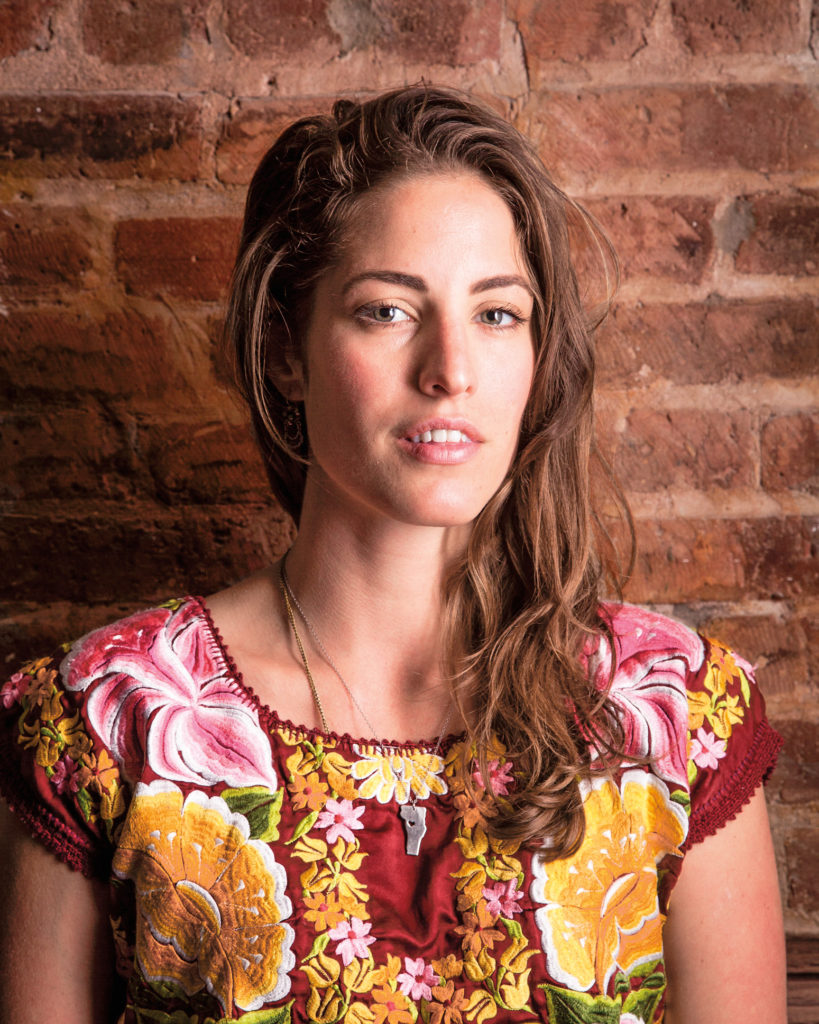
LM: I think being a successful leader requires willingness to listen, adapt and to be led by others when needed.
My whole origin story was based on women giving me a chance and helping me grow, leading me to find my path in this industry.
IM: I think the key of leadership is knowing and understanding delegation of tasks and jobs. We are only as successful as the teams we have around us, because not one person is capable of doing it all. Having a good team of partners, and also mentees/people who want to learn, allows a good leader to teach while leading. With every teaching experience, there is the opportunity to learn.
I am lucky enough to have all of my amazing partners to create my businesses. Lynnette was kind enough to work with me (at the time, a younger and greener and unknown bartender) because she liked the ideas we had together. We used her connections to rise up Speed Rack, and with that my career came with it.
Same with Julie Reiner and Susan Fedroff; I worked for them for years and then opened up my bar Leyenda with them. A rising tide raises all ships, and I have certainly benefited from that.
How has your company benefited from having women at the table making decisions?
LM: I don’t know any other way! I am one of four sisters and culturally and in our home women made many decisions.
I gravitated towards spaces with strong women in the lead positions because that is what felt natural to me. I guess not feeling like it was odd or strange helped me keep pushing for it to be the norm in more places and spaces.
IM: I work best with women. I think women work steadily and efficiently and that has been the case in my businesses.
Who are your professional role models?
LM: I really admire [Norwegian bartender/liquor company owner/digital innovator] Monica Berg. She is very thoughtful and pushes boundaries with how she views hospitality. For the many years I have known her, she offers strong and different perspectives that are thought provoking in a positive manner.
IM: My role models are many. Beyond Lynnette and Julie and Susan, I am inspired by those women (and others!) who manage to work hard to play hard. People who take this industry to live their life how they want it. Carina de Soto, Natasha David and Shirley Brooks show that motherhood and family is doable while owning businesses and bartending, and I have huge respect for that.
Brandi Pollock
Brandi Pollock is the owner of Fisher’s Liquor Barn, Fisher’s Market and The Venue at Fisher’s in Grand Junction, CO.
How did you get into the beverage alcohol business?
I started out at Fisher’s Liquor Barn in 1999 when I was 17. I started out doing payroll, sales tax, accounts payable, accounts receivable, human resources and inventory.
My dad started our original store in 1980, and he reached a point that he needed a new bookkeeper. I jumped in telling him, ‘I will do it! I can learn!’
So I was able to learn everything from my dad and an associate at our accounting firm. She spent hours with me teaching me to understand where we get the numbers, and how to compute every aspect.
Who are your professional role models?
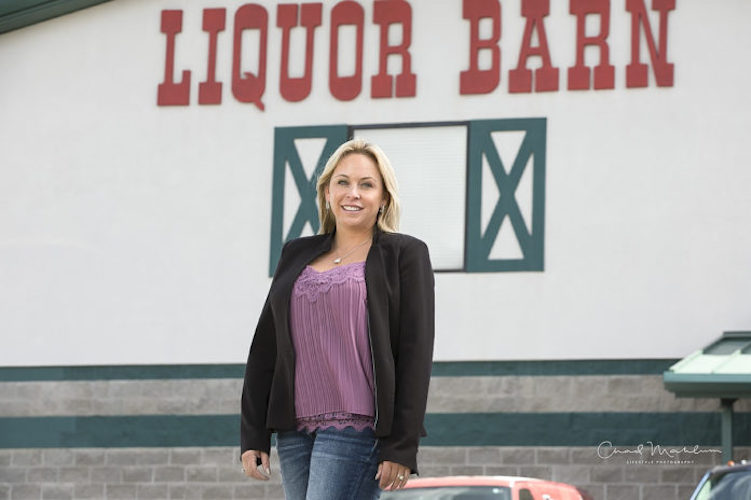
My dad taught me the most. He had been doing most of the things in the store himself, so as I learned one aspect of the store, I would learn another. By the time I turned 21 and was finally able to sell alcohol and bartend for our store, I started doing those things as well.
I love every aspect of the store! At 25 I became majority owner of the store and a few years later we bought a natural meat market (Fisher’s Market). It’s the perfect combination! I love to eat great food and love amazing wines.
In 2019 we bought out my parents. My husband (Jay Pollock) loves the business as much as I do, and we are a great team. We have now added a catering division, so we can take care of our customers every need for food and entertaining.
What makes you a successful leader?
Our employees are like family! We couldn’t do anything without them and their years of knowledge and expertise. We have employees that have came from distributors, straight out of college and how have been long time friends that wanted to come to work for us.
How has your company benefited from having women at the table making decisions?
Being a woman I the liquor industry was hard at first, I felt I didn’t have the respect from suppliers, distributors and staff. I was the owners’ daughter and my parents kept reminding me that someday I would earn the respect from each of them.
At such a young age I didn’t think it came quick enough, I mean I signed their paycheck, why didn’t they respect me? Then one day it all clicked! I went from being ‘Wayne Fisher’s daughter’ to people asking my dad if I was his dad.
It’s become a joke around the store: My dad says now ‘I’m just the dad. I’m Brandi Pollock’s dad’. It makes us laugh, but I think it makes him really proud. I think I have taken over my dad’s way of leadership. I’m pretty laid back and try not to micromanage. I think — and hope — that my employees respect me for that and know that I have faith in them.
Merrilee Kick
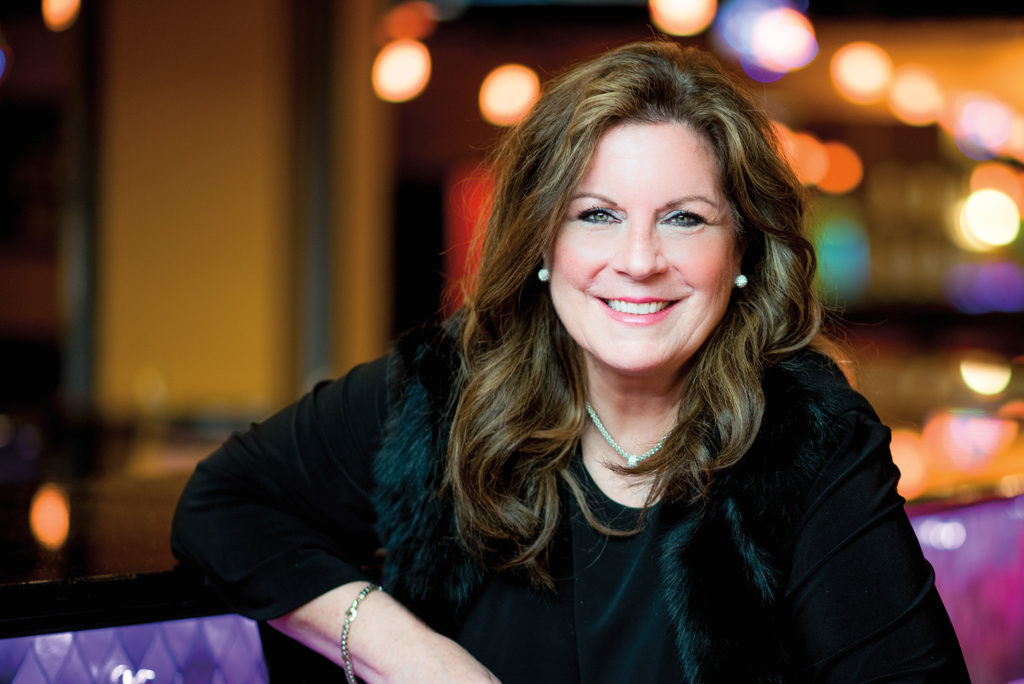
Merrilee Kick is CEO and founder of BuzzBallz/Southern Champion in Carrollton, TX.
How did you get into the beverage alcohol business?
I was a high school teacher working on my MBA, and while I was grading papers by the pool I was having a cocktail. I thought: I shouldn’t have a glass container by the pool. Spurred by the concept of a round snowball candle I had next to me, I thought it would be cool to make a round little cocktail PartyBall. So I created a ready-to-drink cocktail that was round and colorful, safe for the pool, strong and made with natural ingredients. I wanted consumers to be able to buy them by the ball to mix and match their favorites.
What makes you a successful leader?
I’m quick to make changes, I’m detail oriented and not afraid of a challenge. I love innovation.
How important is mentorship?
Did you receive any coming up, and do you provide it to women in your organization? I didn’t really have a mentor in the booze business other than maybe some advice from Donn Lux, and Jack Brennan. I definitely had help from Blair Casey, who bought my first order back in 2010 and now is our head of sales.
I think mentors can greatly help people in this industry — because there is a lot to the compliance and different tax rules in every state. There are so many relationships to cultivate as well.
We have interns that come in to help in marketing or sales, and some work the summer in the warehouse jobs as well. Interns are a little different than mentors, but I am a ‘mom’ to everyone in my company — no matter how old they are, no matter what gender they are, so I feel like I’m a mentor.
How has your company benefited from having women at the table making decisions?
It’s always good to have women at the table! They have a different view than men and it is good to be well balanced.
In my entrepreneurial company, I find my men to be hungry to win at all costs (with sales, with relationships, etc.), and I find my women in my company as detailed, driven, and determined to help. It’s a good balance.
Who are your professional role models?
For alcohol I ask a lot of question to Donn Lux, Bennett Glazer, Jack Brennan, Randy Stoller, Louis Zweig, Shelly Stein. Those guys are great.
There aren’t any women yet I can lean on at the upper level, but there are some. I’m excited to meet Sarah Harmelin at Allied, and Jill Jones formerly of Brown-Forman now on Distributor boards. I use my Women President’s Organization team and my C200 Women’s Team and my International Women’s Forum for those issues. I also lean on my Harvard Business School OPM group to ask for help or suggestions. They get me thinking even if they may not know the answers.
Jessica Cyr
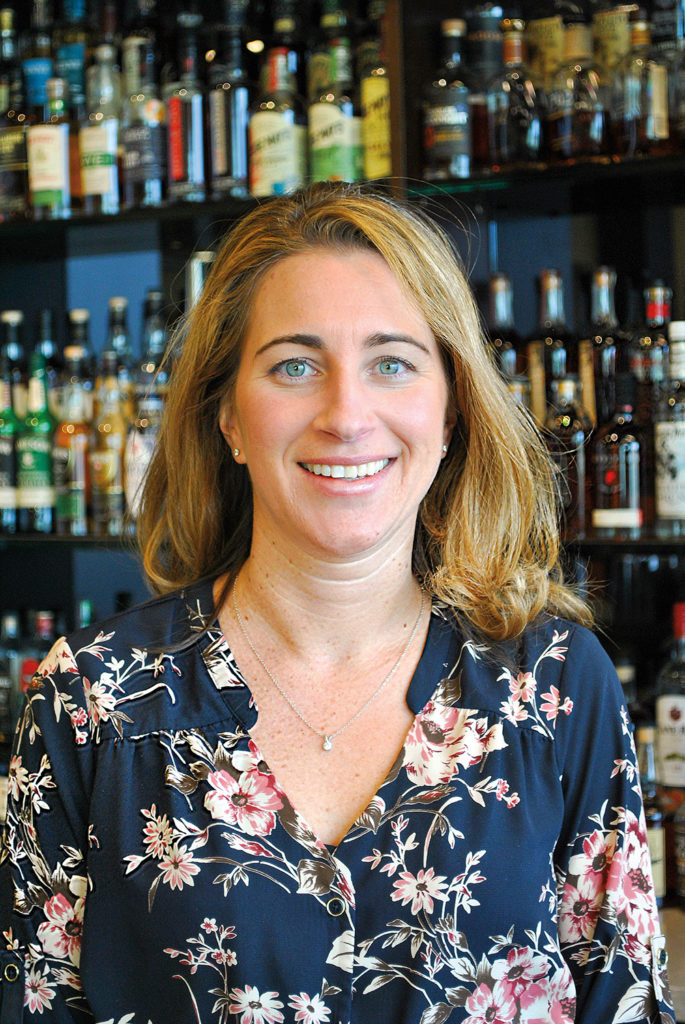
Jessica Cyr is assistant vice president — sales operations Martignetti Companies, and Women’s Leadership Council Chair for the Wine & Spirits Wholesalers of America.
How did you get into the beverage alcohol business?
I was drawn to pursue social work leading to a special-education teaching job in an elementary school, thinking I would be able to make a difference. I enjoyed the children and families that I was supporting, but the pace of change was challenging, and I wasn’t able to have as much impact as I wanted.
I decided to leave education, move to Boston and explore my options. A friend advised me to check out an account manager job for a small beer company. I had no prior knowledge of the industry but was curious to learn about the industry. I certainly liked beer!
I loved this job! It certainly was fast paced as I crisscrossed the state of Massachusetts, in and out of retail stores, pubs, restaurants and nightclubs, meeting all sorts of buyers, consumers and suppliers. Along the way I made some valuable relationships and built a strong work ethic and reputation with my wholesaler.
All those promotions, displays and sales made an impression and led me to take a new role within the wholesale side of the business within United Liquors, now Martignetti Companies. Over the last 15 years, I was able to make an impact through leading teams, managing suppliers and developing initiatives that fulfilled my passion for people and driving to achieve successful results.
What makes you a successful leader?
Confidence ultimately makes me a successful and strong leader. I have always been a confident person, but found my voice in the workforce after managing my first sales team.
My team covered the downtown Boston territory, the sales reps were all men, mixed ages, and varied industry experiences, and their manager I needed them to trust me in order to produce results. I made sure to clearly identify priorities, be comfortable having difficult conversations, and asked lots of questions. It worked, and we were highly successful in achieving results and a positive working environment. It was in this role I started to embrace my leadership and was ready to further my growth with a new challenge.
During my time as a district manager, I was asked to work on project that would highlight achievements of local women in our industry in 2014. The idea quickly developed into the Women’s Beverage Alcohol Symposium, a more than 200 person event held annually for dedicated to building skills, giving back and networking.
We developed the event with modest expectations; it’s now a nationally recognized movement that has impacted over 1,400 women over the last eight years. The success of the event has led to additional opportunities for me in my career and ultimately the opportunity for me to pay it forward, giving my time to women in the beverage alcohol industry.
And finally, fast forward to my current corporate role as assistant vice president of sales operations. I enjoy this role because I can apply my previous experiences to identify best practices, processes and areas of improvement through collaboration to improve sales execution.
One of the largest and impactful projects was developing a formalized sales management certification process. The program established a consistent process across all seven selling divisions using the same metrics and capabilities. The 10-month program included trainings, observations, tests and a final capstone culminating the achievement of sales objectives and imbedding the learned skills and behaviors.
The program has had 100% compliance and is the benchmark for sales management expectations across the company. I am proud to have developed an initiative that is now imbedded into the culture of the company.
How important is mentorship? Did you receive any coming up, and do you provide it to women in your organization?
Mentorship is extremely important. I benefited from informal and formal mentorships throughout my career from both men and women who have cheered me on and given me straight talk for improvement.
I also reached out and asked for help when I wasn’t sure about my career or opportunities. I encourage women especially to not be shy when reaching out to someone you value and want their advice. The worst they could say is no.
We are still working in a male-dominated industry, and the more opportunities to identify your mentors and allies will be critical to your success.
At Martignetti we do have a formal mentorship program that provides participants a cross-departmental networking and skill building over a six-month period. I was thrilled to be part of the development of the program and continue to sit on the committee as we prepare our third year of pairings.
Now, as Chair of the WSWA Women’s Leadership Council, I am proud and honored to represent an extremely talented and accomplished group of women in various roles from around the country who are dedicated to Educate. Elevate and Empower women in wholesale. One of the ways we are doing this is through our WLC Mentorship Program, which provides a chance to make connections, build relationships and establish a larger network that encourages women to take the risk and define their career.
How has your company benefited from having women at the table making decisions?
There are so many benefits to having women and diversity at the decision-making table. As employees continue to demand a more holistic approach to their career, it’s important to have different voices and experiences heard. There are barriers, bias and stereotypes to break, but the momentum is shifting as women continue to make their voices heard.
Determine the value that you can bring and make your case as to why you should be invited to the meeting. Many of the comments I’ve heard from these requests is ‘I didn’t think you would want to be in that meeting’. So speak up! Be your biggest advocate and make it clear how and in what you want to participate that aligns with your career objectives.
Who are your professional role models? I am lucky to have many professional role models that have given me guidance and straight talk throughout my career! It’s important to have people you trust, but also a diversity of thought in your role models. It will help when seeing all sides of the story to make decisions that work best for you!
Emily Wines
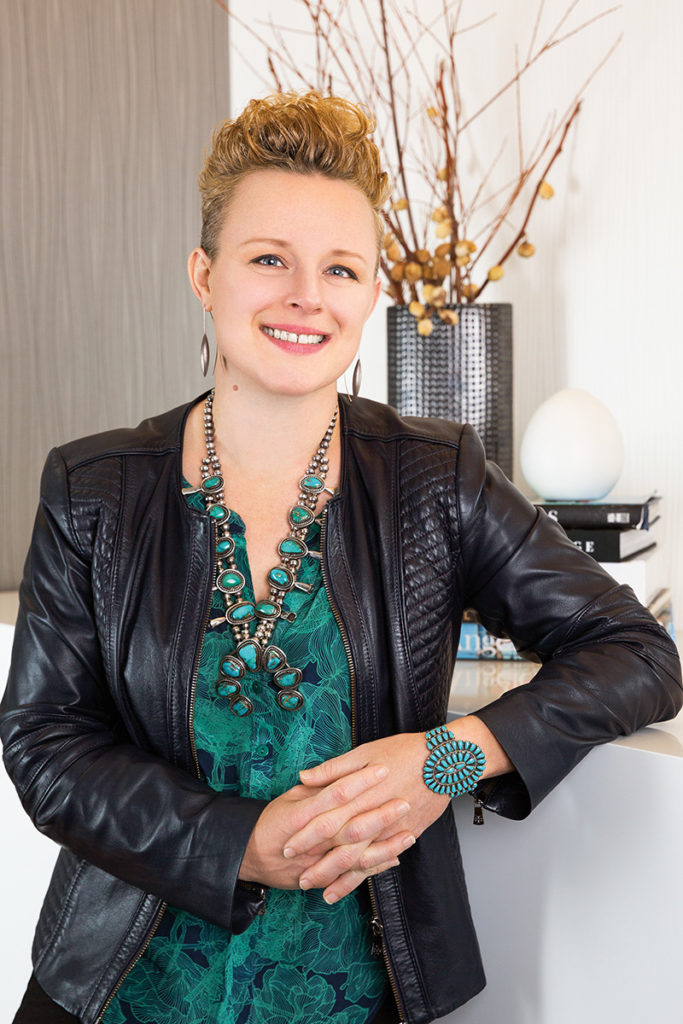
Emily Wines is vice president of wine and beverage experience for the multiunit concept Cooper’s Hawk Winery & Restaurants, based in Orland Park, IL.
How did you get into the beverage alcohol business?
I was working in fine-dining restaurants while I was in college, thinking that fine dining is where I would earn more. What I discovered was large wine programs and in a desire to be a better server, I started studying the wine lists and cross referencing the information from wine books. I fell in love with the subject and decided to focus my career on wine! I became an assistant sommelier first, then eventually the lead sommelier, all while taking my sommelier exams. After becoming a Master Sommelier, I made the shift to more corporate wine and beverage roles in the restaurant industry.
What makes you a successful leader?
Always staying connected to those in the trenches. I believe that if you assume the best of people and treat them with love and respect, that is what you will get back. Far too many leaders forget this. I also believe that a successful leader needs to have the vulnerability to be wrong and to ask questions.
How important is mentorship? Did you receive any coming up, and do you provide it to women in your organization? One cannot be a good sommelier without mentorship. I had many direct and indirect mentors and my role as a mentor today is something that I take very seriously. I have many mentees from across the year, some of whom I am still very connected with today.
How has your company benefited from having women at the table making decisions?
Given that a high percentage of our clientele is female, it is important to have women’s voices at the table.
Who are your professional role models? Niki Leondakis was the president of Kimpton Hotels and Restaurants while I worked there, and her strong leadership is something that has always inspired me. Madeline Triffon (the first American woman ever to pass the Master Sommelier exam) is another, who exemplifies grit and grace and genuine care for all around her.
Maggie Timoney
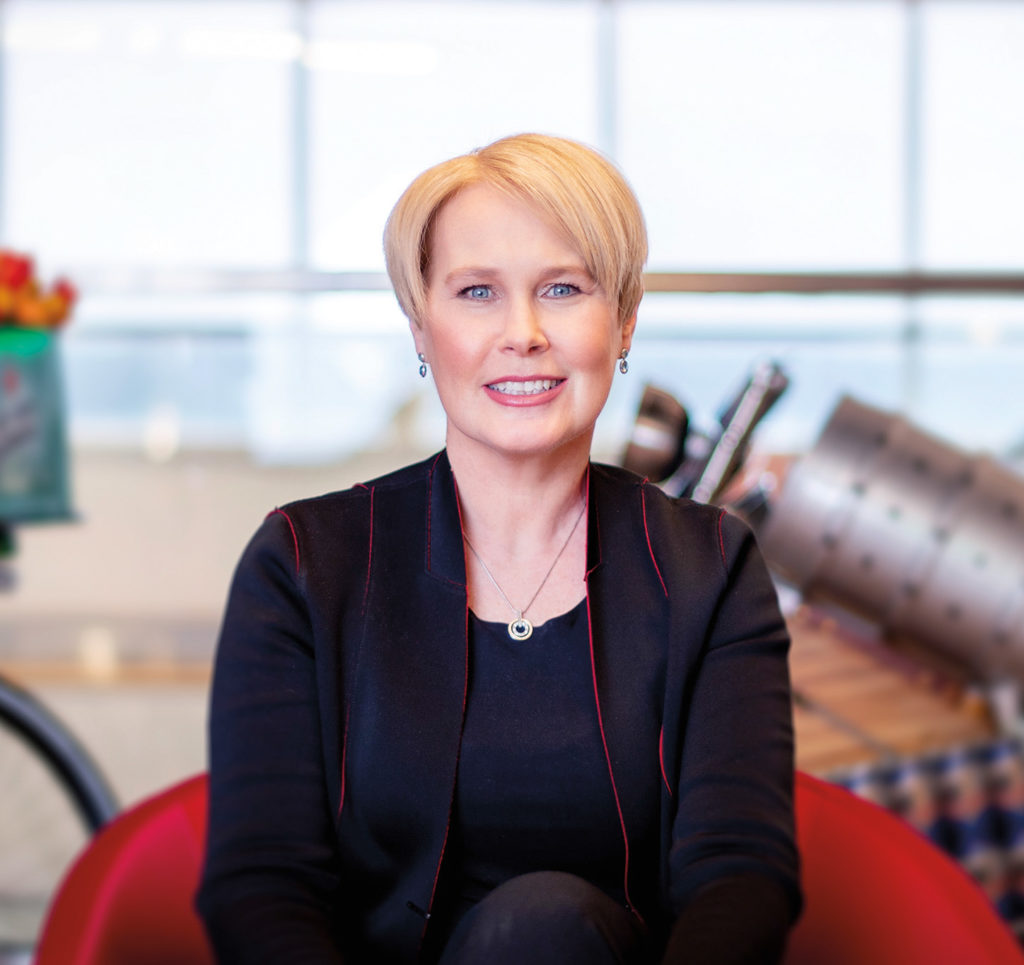
Maggie Timoney is the CEO of Heineken USA, based in White Plains, NY.
How did you get into the beverage alcohol business?
I suppose you can say I fell into the beverage alcohol business. My first job during my teen years was helping auction cattle in Ireland, which is where I am originally from. After graduating from Iona College in New York, I landed a sales role with E&J Gallo Winery.
My degrees in international business and organizational behavior gave me the skills needed to succeed in sales. I went on to hold various sales positions, including serving as vice president of sales, with Sound Distributing Corp. My career with Heineken began shortly after this, where I held a variety of commercial/general management positions for the company in the U.S., Netherlands, Canada and Ireland.
What makes you a successful leader?
Team building and embracing a diversity of skillsets, backgrounds and personalities is what makes a successful leader. The saying ‘we before me’ is crucial to remember. Over the last year and a half, I’ve also learned that leaders should never underestimate the value of reaching out. Open communication, providing context, and setting boundaries are all important concepts to remember when leading a successful team. And, always, be yourself.
How important is mentorship? Did you receive any coming up, and do you provide it to women in your organization?
Mentorship is extremely important, particularly in this industry. During my time in the cattle industry, I learned lessons from the older women working there that I still apply to my job today. I learned how to see people as people and to not judge simply on appearances.
That’s why it’s been so important for us at Heineken USA to have programs like the Women’s Leadership Forum, which was launched over a decade ago to help with the development of women leaders across the organization.
Open to both men and women, this program has helped us build more connections for women both within and outside of Heineken USA, giving members access to learning and growth opportunities that they may otherwise not been aware of or felt comfortable joining. However, what I find more important is that we need to think beyond mentorship to allyship, which was one of the top findings of Behind the Label: Gender Diversity and the Alcoholic Beverage Industry (a research report that Heineken USA released in September 2021). Women across beer, wine and spirits all spoke to how crucial it can be to have people that not only guide you on your path, but who can advocate for opportunities and advancement, as it is likely that most of the time decisions about your career are being made when you’re not in the room.
How has your company benefited from having women at the table making decisions?
At Heineken USA, we pride our ourselves on our spirit of entrepreneurship and innovation — bringing together people with different experiences and different backgrounds to share their creativity. It’s where these perspectives intersect that we often find our best ideas for consumers.
That’s why it’s so important for us to make sure we continue to be representative of the consumers we serve, which include both men and women. Having people at the table who understand the cultural experiences and concerns of the consumers who enjoy our products helps us to consider all of their needs as we’re developing innovations.
In the Behind the Label: Gender Diversity in the Alcoholic Beverage Industry report, respondents also noted that having a mix of men and women at the table is not just a nice-to-have, but a must-have for business.
Both consumers and workers expect brands to be representative of the communities they operate in and are giving preference to those who do.
Who are your professional role models?
It might be unusual to say, but there is not one person professionally that is a role model for me. I have admired and still admire many men and women throughout my career, many of whom have imparted their gifts and wisdom to me knowingly or unknowingly.

